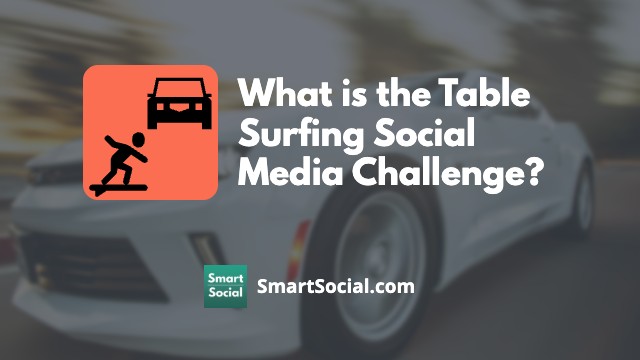What is Anime? A Guide for Parents
Green Zone App
(Click here to learn more)
Dangerous Social media challenge
(Click here to learn more)
Red Zone App
(Click here to learn more)
Gray Zone App
(Click here to learn more)
Are your students watching “Pokemon,” “Yu-Gi-Oh!,” or “Naruto”? If so, then they are already familiar with anime. But, is anime safe for kids to watch? Learn what parents should consider about anime themes and screen time additions when considering whether anime is safe for your kids.
What is Anime?

- Anime is a Japanese word that means any animation regardless of style or origin
- Outside of Japan, anime refers to a specific type of cartoons either inspired by or produced in Japan
- The style of the drawings is usually very recognizable and typically depicts characters with big eyes, wild hair, vibrant colors, and big emotions
- Manga is Japanese comic books or graphic novels that are drawn in the same style. Much anime is derived from manga
- Anime is wildly popular all over the world including the US with both kids and adults
- Anime can be found on television, streaming services (like Netflix), movies, video games, graphic novels, comics (Manga), conventions, and more
- Kids love watching anime because they can relate to many of the characters (which are predominantly kids or teens)
Parent and educator training video
Listen to this course:
Anime dangers in the news

What first appears young, fresh, and innocent can quickly turn to twisted and disturbing themes—a typical trick of the porn industry!

Though Japan prohibited the possession of child abuse material …it stopped short of extending restrictions to manga and anime, two culturally symbolic illustrative media in Japan.
Why should parents & educators care?
- There are many child-appropriate versions of anime available for viewing, but just because anime is in an animated cartoon style, it does not mean that the content or subjects are appropriate for young eyes
- A lot of traditional anime productions have been heavily censored, but it is still fairly easy to find the uncensored versions online
- There are many very adult themes found in anime such as:

- ~Pornography
- ~Moral dilemmas
- ~Ethical issues/current events
- ~Violence
- ~Death
- ~Revenge
- ~War
- ~Substance abuse

- Anime is easily accessed online from various sources:
- ~Streaming services like Netflix, Amazon Prime, Hulu
- ~YouTube
- ~Crunchyroll - an anime streaming service that has more than 4 million subscribers
- ~Torrent Sites
- ~Tumbler
- ~Social media apps like Instagram or TikTok
- ~Discord
- ~Fanfiction sites
- Anime can be a good example of exploring another culture for students
- Watching anime and/or reading manga can spark creativity for students, inspiring them to create their own versions of the art
- There is a lot of fun, upbeat music and exciting action scenes in anime episodes
- Watching anime is often not an isolated activity; fans can spend hours discussing the characters and plot lines with other fans in-person or through social media
What can parents do?
- Discuss with your kids the shows they are interested in watching and research them as a family. Ask your kids why they like these shows and what makes them interested in continuing to watch.
- Watch an episode or two of a specific series in its entirety for yourself to see if it aligns with your family’s media values
- Sit down with your students and have a discussion about pornography and what to do if they come across it while they are online. Read our blog post and listen to our podcast to get 5 Tips for Talking to Kids About Porn
- Find anime shows and movies that are appropriate for the entire family to watch together. There are a lot of family-friendly anime options available. Configure all of your streaming services with the built-in parental controls appropriate for your family (Take our Netflix App Safety Guide for Parents course for help with Netflix parental controls)
Anime terms parents might see
There are many terms that will be helpful to understand while researching appropriate anime content

- Waifu/Husbando - a fictional character that the viewer is romantically attracted to (wife/husband)
- Kawaii - Japanese term for “cute”
- Otaku - hardcore anime fan
- Hentai - Japanese term for “perverted”, anime and manga genre containing pornography
- Loli - young, prepubescent girls
- Lolicon - genre featuring young girls in sexual, erotic situations
- Fan Service - intentionally including unnecessary material only to please the fans, such as revealing clothes to sexual acts
- Baka - Japanese term for “idiot”
- Ai - Japanese term for “love”
- Bishounen/Bishoujo - Japanese term for “beautiful boy”/”beautiful girl”
- Shounen - genre targeting young teen males
- Shoujo - genre targeting young teen females
- Isekai - genre featuring “accidental time travel” usually including a parallel world or fantasy world
- Yuri/Yaoi - genres with hentai featuring lesbian/gay relationships
- Seinen - genre targeting young adult men (late teens to 30’s)
- Josei - genre targeting late teen or adult women
- Ecchi - broad genre that contains anything from sexual overtones and innuendo to lewd content and nudity
- Harem - a sub-genre of romantic comedy where one boy is pursued by multiple girls
Anime and social media
- Anime is very popular on social media worldwide and there are many apps dedicated to the anime community
- Fans of all ages love to talk about their favorite anime characters and plot lines
- Some create their own anime and manga and want to share it online with others
- Many will use these social networking apps/sites to discover new anime
- There are many sites that offer public and private chat rooms for fan discussion but here are a few:

- ~Animega
- ~Anime Planet
- ~Crunchyroll
- ~MAL - My Anime List
- ~Zervo
Conclusion
The world has been watching anime for over 40 years and the Japanese cartoon art form is only becoming more popular. In fact, Anime has become much more than just tv shows. For many people, it is a beloved hobby, pastime, and social following.
While it’s important to know that anime is not all child-friendly, there are many options that your entire family can enjoy together.
Protect your family and enter for a chance to win cool prizes
Become a member or log in to learn more on this topic
Protect your family and enter for a chance to win cool prizes

., start learning from this page to earn points!*
Hello, I'm Josh, the founder of SmartSocial.com.
Don't leave this page until you fill out our feedback form that will appear after you learn from the resources...
Here are some of the latest resources at SmartSocial.com
Become a Very Informed Parent (VIP) to get our social media suggestions in your email every Tuesday & Thursday.



Hello, I'm Josh, the founder of SmartSocial.com. Protect your family by taking my 1 minute quiz
This quiz will help you understand how safe your family is


Schools & Districts: Partner with us to protect your community online
Our remote presentations (and website) teach over a million parents and students each year how to be safe so they can shine online. We teach students how their accounts can be used to create a portfolio of positive accomplishments that impress colleges and employers.


Join Our Smart Social Podcast
each week on iTunes
With over 500 episodes, Josh Ochs interviews psychologists, therapists, counselors, teachers, and parents while showing you how to navigate social media to someday shine online.
Listen on:




.jpg)
.jpg)

.jpg)


